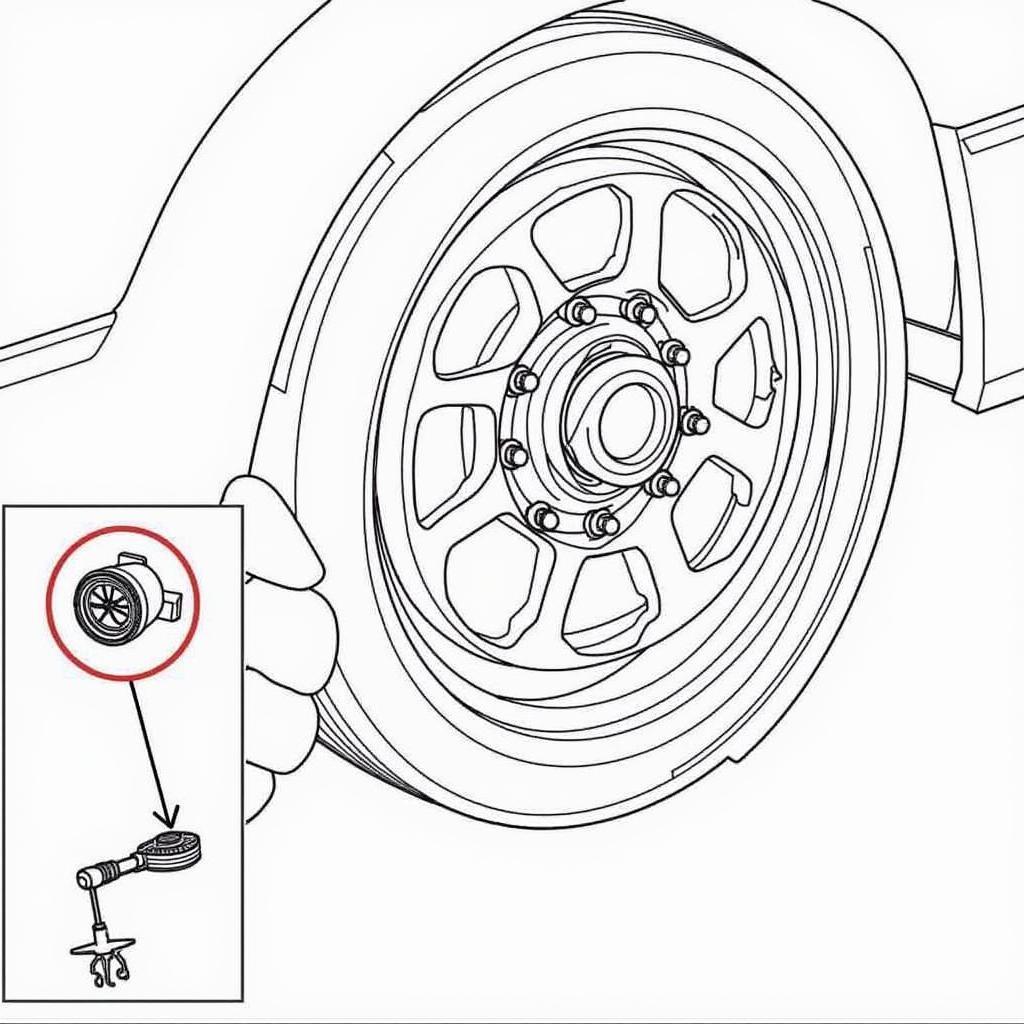In today’s world, car theft is a growing concern for many vehicle owners. Thankfully, anti-theft security devices have evolved significantly to combat this issue. But how exactly do these systems work to keep your car safe? Let’s explore the fascinating world of automotive security and break down the technology that safeguards your vehicle.
Understanding the Basics: Deterrents and Immobilizers
At their core, anti-theft devices operate on two fundamental principles: deterrence and immobilization.
- Deterrence focuses on discouraging potential thieves from targeting your car in the first place. Think of visible deterrents like steering wheel locks, alarm LEDs, and even car alarms themselves. These measures send a clear message: “This car isn’t an easy target.”
- Immobilization comes into play if a thief manages to bypass the initial deterrents. These systems prevent the engine from starting or the car from moving without the correct key or authorization.
Common Types of Anti-Theft Devices and How They Work
Let’s delve into some of the most common anti-theft security devices found in modern vehicles:
1. Car Alarms
How they work: Car alarms are the classic car security feature. They utilize sensors to detect unauthorized entry, impacts, or movements around your vehicle. Once triggered, the alarm sounds a loud siren, often accompanied by flashing lights, to scare off thieves and alert the owner and others nearby.
2. Immobilizers
How they work: Immobilizers are electronic devices that prevent the engine from starting without the presence of a coded transponder chip embedded within the vehicle’s key. When you insert your key into the ignition or bring a keyless fob within range, the immobilizer system communicates with the transponder chip. If the codes match, the system allows the vehicle to start. Without the correct key, the engine remains immobilized.
3. GPS Tracking Systems
How they work: GPS tracking systems offer a proactive approach to car security. They use Global Positioning System (GPS) technology to pinpoint your vehicle’s location in real-time. If your car is stolen, the GPS tracker allows you or authorities to track its movements and potentially recover it. Many modern GPS tracking systems also offer additional features like geofencing, which sends alerts if the vehicle leaves a designated area, and remote shutdown capabilities.
4. Remote Keyless Entry Systems
How they work: While primarily associated with convenience, remote keyless entry systems contribute to car security as well. These systems operate on radio frequencies, using a coded signal between your key fob and the vehicle’s receiver. Only a key fob programmed to your car can unlock the doors or disarm the alarm, reducing the risk of someone tampering with traditional locks.
Common Issues and Troubleshooting
Even with these sophisticated systems, problems can arise. Here are some common issues and how to approach them:
- False alarms: If your car alarm is prone to false triggers, it could be due to a faulty sensor, low battery voltage, or even environmental factors like strong winds. A qualified technician can diagnose and address these issues.
- Key fob malfunctions: If your key fob isn’t working correctly, the battery may need replacement. In some cases, the fob itself might need to be reprogrammed or replaced.
- Immobilizer issues: Problems with the immobilizer system can prevent your car from starting altogether. This often requires specialized diagnostic tools and expertise to pinpoint the issue, which could range from a faulty transponder chip to wiring problems within the system.
FAQs: Your Car Security Questions Answered
Q: Can I install an aftermarket anti-theft device on my car?
A: Yes, several aftermarket anti-theft devices are available, including alarm systems, immobilizers, and GPS trackers. Consult with a reputable car security professional or mechanic to determine the best options for your vehicle and budget.
Q: I’ve lost my car key with the transponder chip. What should I do?
A: Contact your car dealership or a qualified locksmith who specializes in automotive keys. They can cut and program a new key with a transponder chip that matches your vehicle’s immobilizer system.
Q: Are newer cars more difficult to steal than older models?
A: Generally, yes. Newer vehicles often come equipped with advanced anti-theft technologies and immobilizers that are significantly more challenging to bypass than systems found in older cars.
Cardiagtech: Your Partner in Automotive Diagnostics and Repair
At Cardiagtech, we understand the importance of keeping your vehicle safe and secure. Our team specializes in automotive diagnostics, programming, and remote software installation to address various car issues, including those related to anti-theft systems.
Need assistance with your car’s security system or experiencing other technical difficulties?
Don’t hesitate to contact the experts at CARDIAGTECH. We offer a comprehensive range of diagnostic and repair solutions to get you back on the road with peace of mind.
Learn more about our services and products on our website.

